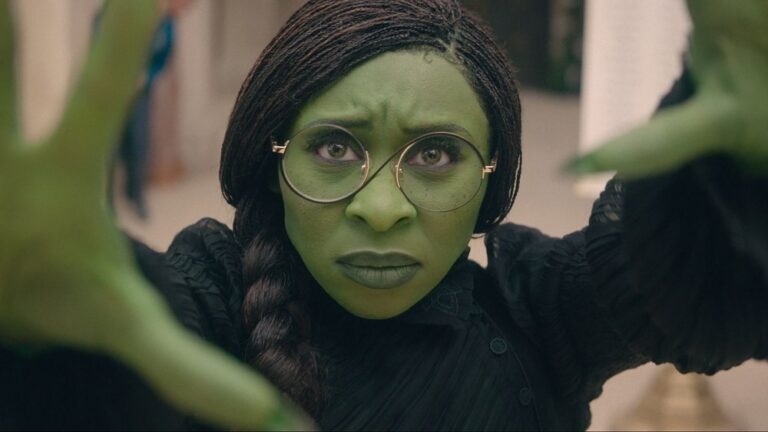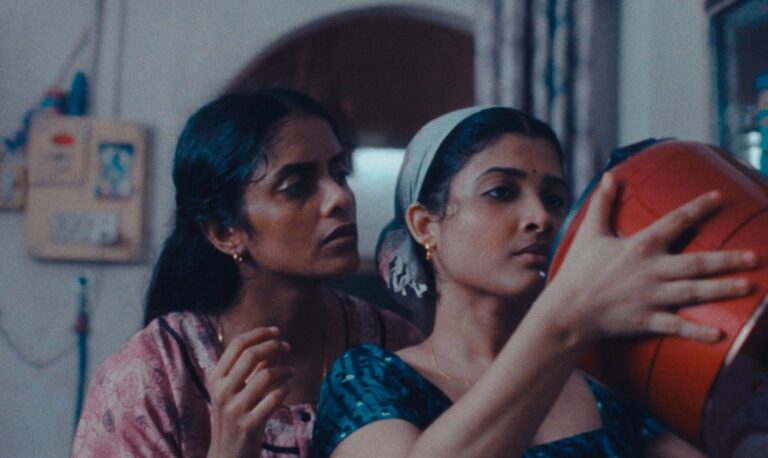Every couple of weeks, the OFCS polls its members with a question related to movies. It can be serious or amusing, but each member is given the opportunity to submit a short response to the question, which we will then post on Thursday mornings. Here is this week’s query.
Essay Question #8: Do you believe in “guilty pleasure” movies, or do you believe critics have a responsibility to back up their opinion about every single film? If you have guilty pleasures, what are they?
Marty Mapes @ CraveOnline
Responses
Beth Accomando @ Cinema Junkie
On a certain level I don’t believe there is such a thing as a “guilty pleasure” because why should you feel guilt over anything that gives you pleasure. I do believe a critic needs to back up their opinion but that simply means explaining why a film is worth your time. So sometimes that explanation might be disputed because the standards by which you are judging a film are not conventional. Ed Wood is a classic example of someone who makes films often deemed “guilty pleasures.” But I feel no guilt enjoying his films because there is such a passion for filmmaking combined with an exuberant do-it-yourself inventiveness. So for me there are no guilty pleasures, only films that need a little more defending than others.
Edwin Arnaudin @ Asheville Citizen-Times
No, I don’t believe in guilty pleasure movies. If you like a film, regardless of how non-prestigious or reviled it may be, you should still be able to explain why you like it.
The second part of the bargain is having confidence in that opinion, no matter how much it differs from the critical and/or public consensus. When you become ashamed of a stance, you’re basically saying that your tastes don’t matter – and that’s simply unacceptable. In a year when new projects involving Johnny Depp, the Wachowskis, Neill Blomkamp and Tim Burton are written off by the majority – often sight unseen – we can use as many passionate, against-the-grain opinions as possible lest we let uniformity rule. Like what you like and don’t let others sway you.
Sean Axmaker @ Parallax View
I appreciate the idea of the “guilty pleasure” even though I feel no guilt, feigned or otherwise, about the disreputable films I like, or about the films I know are not particularly good yet give me pleasure. A love of movies isn’t restricted to appreciating the good and knocking the bad and criticism should be about the way we connect with movies as much as grappling with what they mean and how they mean it. Critics aren’t above embracing movies that make us feel good because of the memories they trigger–who hasn’t turned to a movie that reminds them of past times or relationships and had those emotions rekindled, however briefly?–but there is a responsibility to acknowledge that as we write about them. Or perhaps we should see it as an invitation to remind people that we, like everyone, love movies for all sorts of reasons, not all of them logical, and understanding those reasons only enrich the experience.
Kevin Carr @ Fat Guys at the Movies
Absolutely “guilty pleasure” movies are valid. Just because you’re a critic doesn’t mean that you can’t enjoy a movie at its total basal level. Movies are there to entertain as much as they are to change the world and make a significant statement.
Plus, many guilty pleasures bring us back to our childhood when we were going to the cinema for escapism and entertainment rather than because our job dictated it. Movies elicit an emotional response, and it is perfectly okay to enjoy that emotional response.
Some of my personal guilty pleasures are the STAR WARS films (yes, including the prequels), many modern superhero movies, 80s slasher films, the films of Renny Harlin and raunchy comedies. I grew up on these movies, and they were always enjoyable for me.
Robert Cashill @ Popdose
In our wired, forum-filled world, the concept of a “guilty pleasure” is as out-of-it as a rotary phone. Back in the day, having affection for films like The Exorcist: Part II or Heaven’s Gate, as I do, felt out of step with critical and public mores. Today, it’s easy to find love for them, or parts of them, in certain quarters on the Internet–my pleasure is no longer stigmatized. Not that I cared much about the received wisdom regarding “questionable” movies I liked, but you can more easily back up your opinion knowing that others have your back.
Andy Crump @ Paste Magazine
There’s no such thing as a guilty pleasure. If you watch a movie and enjoy it, either as a piece of art or entertainment, then there’s no reason to feel bad about it; all experience is valid, so your experience with the movie doesn’t need to be excused through guilt. What it DOES need, however, is proper justification. It’s one thing to enjoy a movie most others might find unfashionable, but it’s another entirely not to articulate why.
Edwin Davies @ A Mighty Fine Blog
Until a few years ago, I would say that I didn’t believe in guilty pleasure movies. I feel firmly into the camp which said that you like what you like, and that if you like something then adding notions of ‘guilt’ to it seems like an unnecessary complication.
Then, I saw Fast Five, and all that went straight out the window. Now, I can justify liking the Fast and Furious films to some extent for their kineticism and sense of craziness, and I do feel that it is worthwhile to examine why we like a film and why we feel guilty about doing so, but that doesn’t mean that I don’t feel a little bit embarrassed about admitting how much I enjoy those silly, silly car films.
Marilyn Ferdinand @ Ferdy on Films
I don’t think of movies in those terms. I don’t think there is only one taste level to which people have to measure up, and that goes for critics, too. If I am reviewing a film, I will point out things that might not work for everyone, even if they work for me, and that’s as far as I go in “justifying” my preferences. Do I have movies in my pantheon that perhaps only a mother should love? Maybe. The Nick Castle flick TAP (1989) is one a lot of people haven’t noticed, but I can’t resist leading man Gregory Hines or any of the legendary tap dancers in the cast. That’s nothing to feel guilty about, and I don’t.
Candice Frederick @ Reel Talk Online
I do believe in guilty pleasure movies and TV shows because, in a pop culture climate in which primetime soaps are giving traditional dramas a run for their money, we’ve become inundated with the guilty pleasure narrative. But who doesn’t want that endlessly reqatachable movie that may not be great but is always dependable.
Kathy Gibson @ Access Bollywood
I’m not a fan of the phrase “guilty pleasure.” I like plenty of movies that I know are qualitatively terrible, and I don’t feel guilty about it. The phrase “guilty pleasure” is too often used as a substitute for analysis. If I like something terrible, I had better be able to explain why.
Take for example the Hindi movie GUNDA. Not a shred of competence went into the making of the movie, and yet watching it makes me incredibly happy. There’s something charming about the degree to which the movie fell short of the filmmaker’s ambitions, and yet he released it anyway. Plus, the climax features the hero tossing a baby to a monkey. What’s not to like?
Kristen Lopez @ Awards Circuit
I certainly believe in guilty pleasure movies! I’m well-aware of the fact that certain films I love are bad, but so long as I can justify why I (and sometimes only I) think they’re worthy of one’s time, I’ve done my job. I have quite a few guilty pleasure movies: Showgirls, Tremors, The Little Mermaid (hey, as a feminist, I have to admit this movie is terrible for girls, but fun for me), XANADU!
Carson Lund @ Are the Hills Going to March Off?
We live in a puritanical culture if pleasure is something we should ever feel guilty for. To call a film a “guilty pleasure” is generally a person’s defense mechanism against a perceived standard of culturally accepted taste, which results in a lot of broad swiping against “low” or “vulgar” fare. Playing into this charade results in a depressing groupthink that systematically rules out the possibility to appreciating on serious terms supposedly non-serious cinema, or, on the contrary, dismissing supposedly serious cinema as frivolous garbage. The only truth is to follow one’s instincts and articulate what those instincts tell us as clearly as possible.
Marty Mapes @ Movie Habit
I recognize that people react to films (critics included) for any number of reasons. Hopefully, on any given day, a critic can articulate those reasons. But there are some movies I just plain like (or hate) for reasons that won’t make sense to someone else. And other critics that I know would say the same thing.
Cases in point: Kiki’s Delivery Service and Whale Rider, both about girls learning how the world works. Kiki is one of my favorite Studio Ghibli films, (though most critics think the darker, more serious films are better). But any story about finding your place in the world — finding what you’re good — is likely to catch me in its spell.
On the opposite end are films like Whale Rider, where a purely religious epiphany that is supposed to move the audience only annoys me. When enough people politely tell me I’ve missed the point, I can only assume they are right.
Pat Mullen @ Cinemablographer
I definitely think that guilty pleasures exist! Fifty Shades of Grey isn’t a guilty pleasure (it’s just bad), but many films redeem themselves because they crank up the calories we crave. Showgirls might be the best example of a guilty pleasure, since it clearly aspires to great things and inadvertently provides a lot of entertainment by missing the mark so ridiculously badly.
Some of my favourite films are silly, trashy, campy fun. Take a film like Atom Egoyan’s Chloe, for example, which many critics dismiss as hokey, artless, nonsense, but I enjoy every minute of it simply because it’s so convoluted and ludicrous. Clue: The Movie never loses its appeal even though it runs in every direction. Brian DePalma’s Femme Fatale (or even most of his filmography) shows that even a delightfully sleazy exercise in style, genre, and cinephilia can provide a thrill for the two hours of the film experience, and even his most recent film Passion stimulates some of the best debates over a film I’ve enjoyed with friends, mostly because of the differing viewpoints over whether it’s bad art or good garbage. Film is entertainment just as much as it is an art, and there’s no problem when a film reviewer or filmgoer justifies his or her opinion with the simple explanation, “I enjoyed it.”
Frank Ochieng @ SF crowsnest
Sure, I personally endorse the concept of “guilty pleasure” movies that critics have a right to promote and separate from perceived inferior filmmaking fare. There needs to be an occasional flexibility barometer where critics can get off their high horse from time to time and acknowledge that some cinematic fare may have some redeeming factors to it despite the automatic urge to pan and poison such flimsy flicks.
As much as it is tempting to obliterate cinematic stinkers such as 2004’s unbearable “From Justin to Kelly” (and rightfully so) one can also find something positive to pinpoint about such a flaccid dud to go against the grain and actually give this cinema stiff its due. It is undeniably challenging but hey…it happens to the best of movie reviewers from all walks of life.
Among my guilty pleasures (with the emphasis on the word “guilty”) are 1996’s “The Cable Guy” and 1997’s “Batman and Robin”. (gasp!)
João Pinto @ Portal Cinema
I strongly believe in “guilty pleasure” movies, but a movie critic should always make an evaluation based on the quality of the movie itself and then say it’s his or her personal opinion, because a “guilty pleasure” can have many reasons behind it. My biggest “guilty pleasure” is probably Steven Spielberg’s “War of The Worlds”. I know it has several faults, but I love to watch it.
Kevin Ranson @ MovieCrypt.com
Guilty pleasure movies are part of the film experience. Yes, these are usually meant as quick cash cows sucking up as much coin in a single weekend box office take, but not every film is required to be Oscar-worthy or even memorable. Sometimes it’s okay to leave you brain at home and wallow in cheese, enjoying on-screen Bayhem as a series of money shots. It is the critic’s responsibility to single out such critic-proof candy, for the same there’s a reason why Dwayne “The Rock” Johnson is one of the highest-paid actors in Hollywood: people will pay to watch.
Nuno Reis @ Antestreia
Movie critics, above any other thing, are cinephiles. We love the films in all their complexity and have a duty to avaluate them based in logical but also in emotional principles. If we’d use a cientific approach to define what is a good film, why would the world need humans reviewers? A computer could do the work by itself. And the writers, producers and directors would all be doing the exact same movie forever, based on that “perfect” recipe. We watch cinema with our eyes, door to the heart. We watch based in our life experience from the past, our feelings in the present, our hopes for the future. A story taking place in our home town is more meaningful than one miles away. A character listening to the same music we heard when falling in love, will stay forever in our memory. We can learn to love a film, or the film can grow fond within us. If we see all the flaws in a film and still love it, no matter how many times we watched it, it is a guilty pleasure. And we forget the guilt to feel the pleasure.
My guilty pleasures are mostly from my childhood and teen years. The films that made me love cinema. Because of those many unperfect films, I started to search for more, better ones.
Jerry Roberts @ Armchair Cinema
The term ‘guilty pleasure’ basically means anything that you wouldn’t tell everyone that you liked. In certain groups, you’d be happy to reveal movies that you’re ashamed to have liked, in others, you’d keep it to yourself. For example, I have a group of friends that I go to see event pictures with, but I have a different group of friends online that I discuss important or art films with. In the first group, I would by happy to admit my affection for The Cannonball Run, After Earth, Return of the Living Dead Part II, Commando, Wild Things or Battleship, The other group, which tends to be a little more closed off from mainstream or junk food movies, I’d keep them to myself.
You like what you like, there shouldn’t be a requirement that you should have to explain it. There are Guilty Pleasures, movies that you wouldn’t admit that you like in certain company. If they make you happy, let them make you happy. I personally enjoyed “After Earth,” because I liked the effort, I liked the adventure, it doesn’t matter what the general consensus was.
Robert Roten @ Laramie Movie Scope
I believe in “guilty pleasure” movies, and yes, despite this attempt to make one misleading question out of two straighforward ones, I also think critics are obligated to defend their opinions of every single film, even if few others agree with them. To do otherwise is cowardly.
If all critics agreed with each other on every film, that would be so dull. Varieties of perceptions and opinions give much-needed spice and heat to our craft. I have way too many guilty pleasures to fit into this tiny essay format, but one is “The Last Airbender.”
Marcio Sallem @ Em Cartaz
No, I don’t believe in ‘guilty pleasure’ movies. It’s hard to dissociate a fun movie from a good one, and the critic should have enough arguments to back up their opinion even if sometimes it seems redundant to do so. Calling it a guilty pleasure instead of seeking for narrative qualities is just lazy.
In time, I do think there’re guilty pleasure only on one circumstance: when we’re talking about a childhood movie that just didn’t work quite the way it did after the critic got a hold of the movie language. But, you can also call it ‘nostalgia’.



